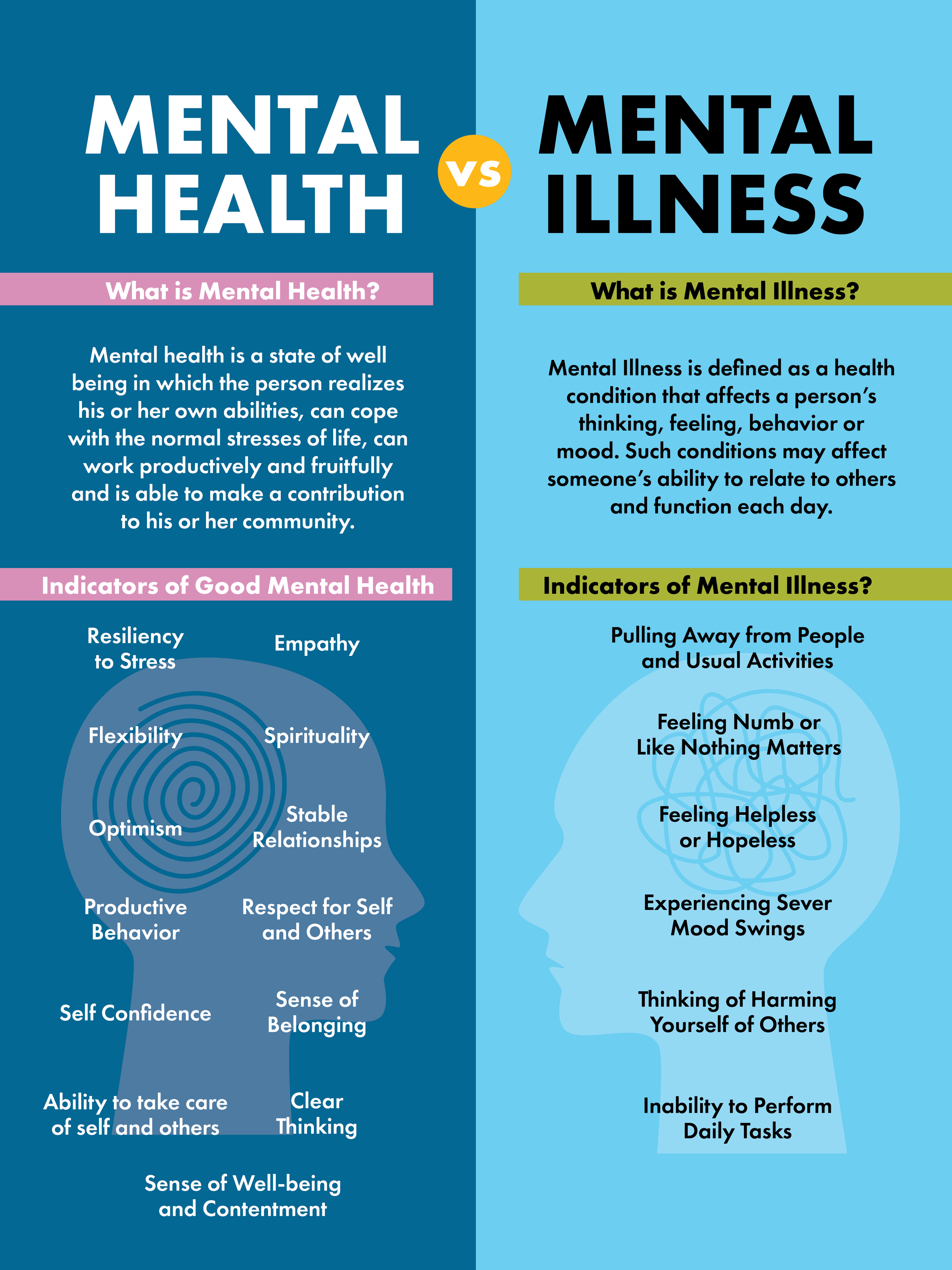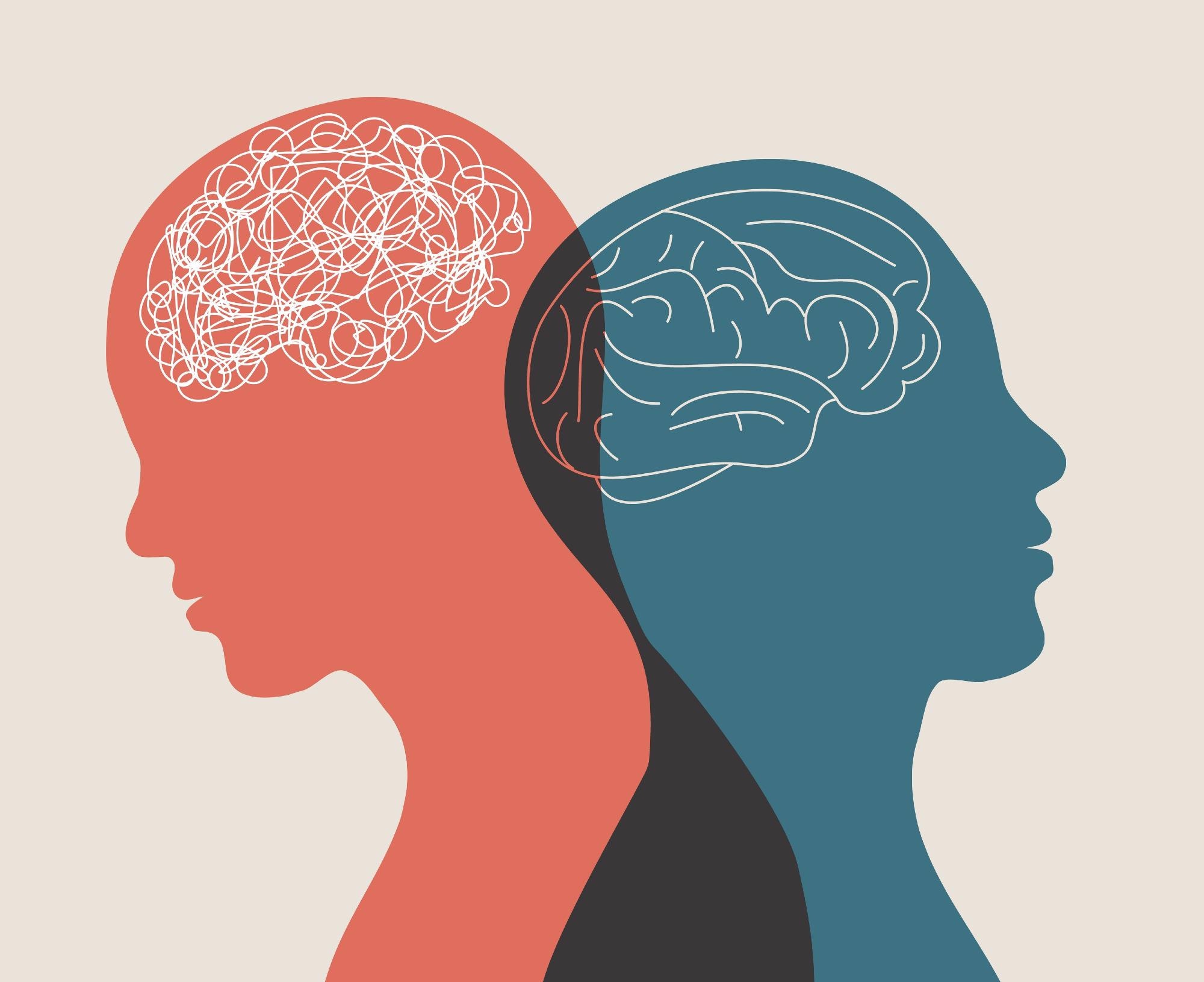Mental health refers to the overall well-being of a person's emotional and psychological state. It encompasses the ability to manage stress, emotions, and relationships in a healthy manner.
Mental health plays a crucial role in a person's ability to cope with daily challenges and maintain a positive outlook on life. It involves aspects such as self-esteem, resilience, and the ability to handle difficult emotions. A well-maintained mental health can lead to improved overall quality of life and enhanced interpersonal relationships.
Conversely, poor mental health can lead to various mental illnesses, such as anxiety disorders, depression, and psychosis. It is essential to prioritize mental health and seek appropriate support and treatment when needed.
Understanding Mental Health
Mental health refers to a person's emotional, psychological, and social well-being. It affects how we think, feel, and act. It also helps determine how we handle stress, relate to others, and make choices. Mental health is important at every stage of life, from childhood and adolescence through adulthood.
Definition of Mental Health:
Mental health is a state of well-being in which an individual realizes their own abilities, can cope with normal stresses of life, can work productively, and is able to make a contribution to their community.
Factors Influencing Mental Health:
- Biological factors, such as genetics or brain chemistry.
- Life experiences, such as trauma or abuse.
- Family history of mental health problems.
- Mental health problems are common but help is available.
Importance of Mental Health:
- Mental health is essential for overall well-being.
- Good mental health helps cope with the challenges of life.
- Promotes resilience, productivity, and healthy relationships.
- Seeking support and treatment is crucial for maintaining mental health.

Credit: www.herefortexas.com
Common Mental Health Disorders
Mental health refers to a person's emotional, psychological, and social well-being. It affects how we think, feel, and act, and plays a significant role in our overall health. Understanding common mental health disorders can help raise awareness and promote support for those affected. Some of the most prevalent disorders include:
| Depression | Characterized by persistent sadness, loss of interest, and feelings of hopelessness, depression can significantly impact an individual's daily life. |
|---|---|
| Anxiety | Feeling anxious or worried is a normal part of life, but when these feelings become excessive or uncontrollable, it may indicate an anxiety disorder. |
| Bipolar Disorder | This disorder involves extreme mood swings, alternating between episodes of mania (high energy) and depression (low energy). |
| Schizophrenia | A chronic mental disorder, schizophrenia affects a person's thoughts, emotions, and perception of reality. |
These common mental health disorders can be effectively managed and treated with appropriate support, therapy, and medication. It's important to recognize the signs and seek help if you or someone you know is experiencing any of these conditions.
Promoting Mental Health
Promoting Mental Health: Self-care and well-being are essential for maintaining good mental health. Taking the time to prioritize self-care activities, such as exercising, getting enough sleep, and practicing relaxation techniques, can help reduce stress and improve overall well-being. Seeking professional help is also important for individuals experiencing mental health issues. Therapists, counselors, and psychiatrists can provide guidance and support tailored to individual needs. Creating supportive environments is crucial for promoting mental health in communities. This includes fostering open and non-judgmental spaces where individuals feel comfortable expressing their feelings and seeking help. Additionally, reducing stigma and educating others about mental health can help create a more inclusive society. By challenging misconceptions and providing accurate information, we can promote understanding and empathy towards individuals dealing with mental health challenges.
:max_bytes(150000):strip_icc()/definition-of-mental-illness-4587855-v1-cd7f9f37c61c49099ac8ede282db1e73.png)
Credit: www.verywellmind.com

Credit: www.news-medical.net
Frequently Asked Questions On What Is Mental Health?
What Is Mental Health?
Mental health refers to a person's emotional, psychological, and social well-being. It affects how we think, feel, and act, and helps determine how we handle stress, relate to others, and make choices. Mental health is important at every stage of life, from childhood and adolescence through adulthood.
Conclusion
Mental health is an essential aspect of our overall well-being. It affects how we think, feel, and behave, impacting every aspect of our lives. Taking care of our mental health is crucial to living a fulfilling and balanced life. By understanding mental health and seeking help when needed, we can truly thrive.
Remember, self-care should never be underestimated – prioritize your mental health today!
Comments
Post a Comment